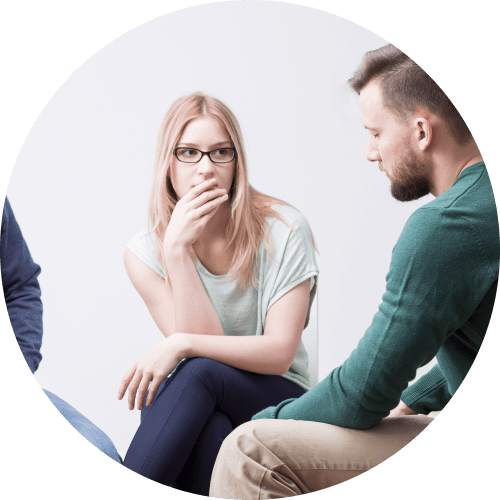SERVICES
Who We See
Patients are often referred to us by their therapist or psychiatrist. However, patients can also refer themselves. Such individuals can be seen promptly by a psychiatrist at IOP Services. No matter the case, we conduct our own assessment prior to enrolling a patient in the program. We do not see individuals who have a primary problem with substance abuse. We are also not designed to provide care to individuals with severe or disabling psychiatric conditions (eg. schizophrenia or serious head trauma).
The Schedule
IOP programs are intensive. Treatment is 3 hours per day, 3 days per week, for a total of 9 hours per week. In our program, in-person groups meet on Monday, Wednesday, and Friday, while virtual groups meet on Monday, Wednesday, and Thursday. Morning sessions (9am to Noon), afternoon sessions (1pm to 4pm), and evening sessions (virtual 5pm to 8pm) are available. The length of enrollment is individualized, but a typical timetable is around 12 weeks.
Post Treatment
Many patients in the program have established relationships with a therapist and psychiatrist. At the completion of the program, these patients naturally return to the care of said professionals. Even during IOP enrollment, patients can meet with their established clinicians. If a patient enters our program without established clinicians, we immediately begin formulating a post-treatment plan for them.
Effective, Innovative Therapy
Our groups meet for three-hour sessions, three times per week. Spending that much time in a traditional, individual therapy setting would be ineffective. However, spending that amount of time with a small community of individuals, with similar experiences and pain, has been medically proven to have lasting, positive effects in patients. This isn’t rocket science. What IOP offers are fundamental aspects of a happy and fulfilling life. Aspects that are, unfortunately, often missing in the modern world. The methods learned are simple and pragmatic, meaning our patients can utilize them in their daily lives long after they’ve left the program.
Participation
The most common aspects of therapy (i.e. talking and sharing openly) is an undeniably critical part of healing.

Shared Experience
Community is arguably the most overlooked necessity in today’s world. Connection can be found anywhere. And when it’s found in struggle and pain, it has immense power. IOP gives patients a sense of belonging and normalcy that they might not otherwise find.

Listening
While listening can seem antithetic to therapy at first glance, it’s often the missing piece patients need. Hearing another individual share their troubles and experiences directly can have profound effects on patients. Senses of loneliness and guilt fade as hope creeps in.

Cognitive Authority
We give our patients the tools to personally maintain a beneficial state of mind, so they can return to a routine level of treatment.

The Skills Our Patients Learn:
It’s important that patients leave our program having learned valuable methods to personally manage and treat their disorders. Treatment only succeeds in the long-run, if patients develop proactive techniques for managing anger, coping with stress, relieving anxiety, and handling depression.